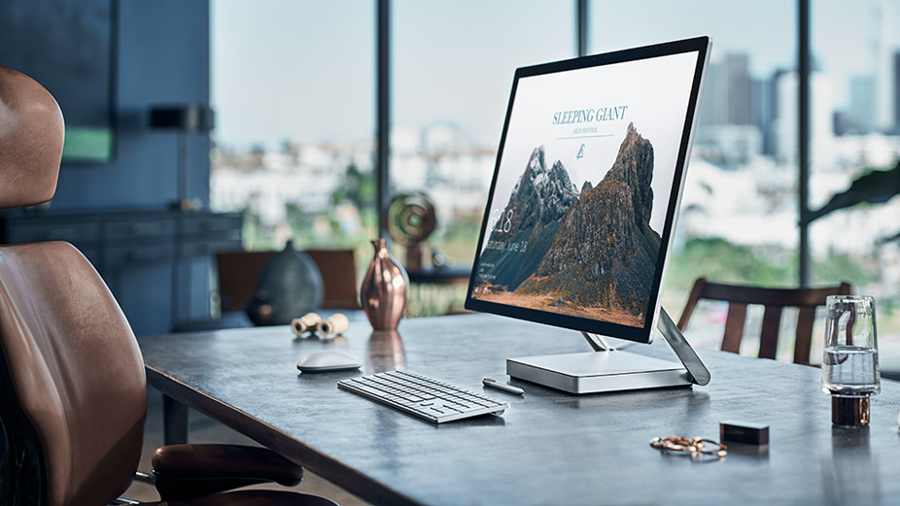Surface Studio teardown shows a cool design with upgradable storage
But all other main components are soldered to the motherboard

The Surface Studio has begun shipping, and iFixit has already received its all-in-one PC from Microsoft, swiftly carrying out the compulsory teardown which shows that the device does have some upgrade potential – at least in terms of the storage.
Interestingly, iFixit found that the Studio’s pixel-packed display has its own dedicated ARM chip. But more expectedly, the site also discovered that the processor, GPU and system RAM were all soldered to the motherboard, so there’s no chance of being able to upgrade these in the future.
That’s a bit disappointing in terms of the latter, and it’s worth bearing in mind that if you go for 8GB, you’ll be stuck with that amount of RAM – a quantity which is looking far from future-proof these days (given the price of the Surface Studio, you’ll be expecting the machine to last a good while in service, no doubt).
The good news in terms of upgrading, though, is that there is potential with the storage, which consists of a SanDisk Z400s M.2 64GB SSD paired with a traditional 1TB 2.5-inch spinning disk (Seagate Spinpoint M8 – a SATA II drive, which is again a slight downer).
Both of these can be replaced if you open up the base of the machine, a task which iFixit notes is easy enough (although not exactly trivial).
The other good news is that if the display goes wrong, the entire thing can be swapped out and replaced as one piece, with iFixit giving the Surface Studio a solid enough overall repairability score of 5 out of 10.
- Find out what's new with Microsoft's HoloLens headset
Soldering on
The main negatives are, of course, the soldered-on components as mentioned (CPU, GPU, RAM) and the fact that a few minor components are embedded in the display and will be tricky to replace should they go wrong (like the buttons and built-in speakers).
Sign up for breaking news, reviews, opinion, top tech deals, and more.
The tech site also looked at the cooling solutions inside the all-in-one, and made pleasant noises about the setup, which includes two fans – one for the processor and one for the GPU – along with a considerably sized, well-designed heatsink and system of heat pipes.
In our hands-on with the Surface Studio, we praised the PC’s gorgeous display and clever design, the main disappointment for us being the lack of Pascal graphics, and of course the stumbling block of the price. Although this is clearly a machine aimed at creative pros rather than a mainstream audience.
Via: Slashgear
- Craving something more portable? These are the best 2-in-1 laptops of the year
Darren is a freelancer writing news and features for TechRadar (and occasionally T3) across a broad range of computing topics including CPUs, GPUs, various other hardware, VPNs, antivirus and more. He has written about tech for the best part of three decades, and writes books in his spare time (his debut novel - 'I Know What You Did Last Supper' - was published by Hachette UK in 2013).